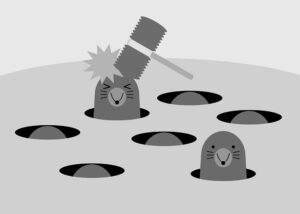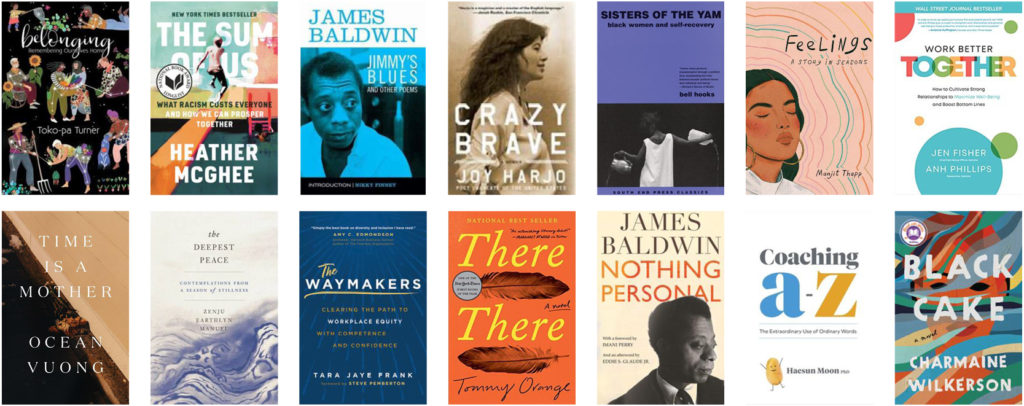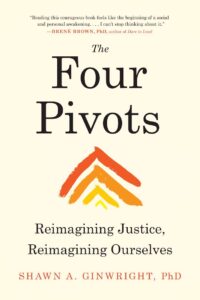The thinking is that resilience is something we find within ourselves only when tested. It is an internal grit that is supposed to allow us to bounce back stronger than before. When the phrase “bounce back” is linked with the word resilience, it is often describing the difference between a successful or an unsuccessful outcome, but does not acknowledge the person’s emotions, what was lost, what needs to be grieved, what needs to be healed, what will be different or the same, and how choices might be made going forward.
 Language can be subject to individual interpretation, and given our cultural and linguistic differences, being clear when using a word like resilience is paramount. Resilience means different things to different people, so understanding how that word and the corresponding behaviors are interpreted by the person is essential in determining where the individual is on their journey.
Language can be subject to individual interpretation, and given our cultural and linguistic differences, being clear when using a word like resilience is paramount. Resilience means different things to different people, so understanding how that word and the corresponding behaviors are interpreted by the person is essential in determining where the individual is on their journey.
Out of Necessity
 Resilience is not purely an individual characteristic. Our resilience responses are personal and shaped by our unique history, personality, and personal context. More importantly, it is a community activity. Given that we are interconnected beings, cultivating and maintaining authentic connections can broaden our perspective in learning different ways of managing, leading, and handling crises. It’s the actual interactions themselves, particularly with a diverse group of people, that allow us to get through anything that’s difficult.
Resilience is not purely an individual characteristic. Our resilience responses are personal and shaped by our unique history, personality, and personal context. More importantly, it is a community activity. Given that we are interconnected beings, cultivating and maintaining authentic connections can broaden our perspective in learning different ways of managing, leading, and handling crises. It’s the actual interactions themselves, particularly with a diverse group of people, that allow us to get through anything that’s difficult.
“Necessity is the mother of invention,” and, in this case, the discovery of the self is a result of the adversity experienced. Resilience happens when there is no other choice. It includes processing and understanding our response to stress and challenges, while actively working through them.
Resiliency can be seen both positively and negatively. It is neither a choice nor advocated as something to strive for! It is more than the ability to recover quickly or bouncing back. Resilience is about lived experiences and personal development during difficult moments. While no one desires to face trauma, systemic racism, or other adversities, when they occur, lives can be reshaped with personal and communal systems of support.
 For People of Color and other marginalized groups, deciding to be resilient is not optional. Systemic racism, living in poverty, not earning a livable wage, subpar housing conditions, inadequate schools, and diminished mental and physical health might leave People and Color feeling like they are in a Whac-A-Mole machine — getting knocked down, getting up, then knocked down again. To demand resilience might be a form of oppression and harmful given the historical systemic hardships endured because resiliency is a matter of survival.
For People of Color and other marginalized groups, deciding to be resilient is not optional. Systemic racism, living in poverty, not earning a livable wage, subpar housing conditions, inadequate schools, and diminished mental and physical health might leave People and Color feeling like they are in a Whac-A-Mole machine — getting knocked down, getting up, then knocked down again. To demand resilience might be a form of oppression and harmful given the historical systemic hardships endured because resiliency is a matter of survival.
When too much is too much
Too much resilience could make people overly tolerant of adversity. There is a BetterHelp commercial that beautifully demonstrates this attitude of over-tolerance to adversity, where the self is objectified and pushes through the distress with grit. When we treat ourselves as objects and are not attuned to the energy that is our source, adaptive competence becomes maladaptive. Extreme resilience could drive people to become overly persistent in resisting support and taxing their system to the point of distress.
Fostering Resilience
 Given our adaptive capacities and social determinants, resilience can be either positive or negative. It manifests differently for each of us, and there is no single approach. Self-compassion is called for in these difficult times, with the key factor being vulnerability, naming and acknowledging our emotions, and declaring what is needed.
Given our adaptive capacities and social determinants, resilience can be either positive or negative. It manifests differently for each of us, and there is no single approach. Self-compassion is called for in these difficult times, with the key factor being vulnerability, naming and acknowledging our emotions, and declaring what is needed.
Being in environments that are safe enough to have our needs met is critical. When we trust ourselves and those around us to share deeply about difficulties, our confidence to ask for and receive help is shored up. A learned attribute, resilience is developed through a strong sense of self-efficacy, self-trust, and self-esteem in our relationship with ourselves, in community with others. Recognizing the dynamic nature across the lifespan and racial identities allows us to better understand the potential impact of an event and how we respond differently. Superseding bouncing back, it might be life-changing.
Conclusion:
The next time you think about simplifying the resilience process to bouncing back, reconsider how you’re defining it. Also, make room for the uncomfortable, while knowing when too much is too much. Collectively, we are experiencing numerous social and global crises, such as a pandemic, climate crisis, mental health crisis, racial unrest, military conflicts, financial crisis, political unrest, and a drug epidemic. It is important to make space and acknowledge our individual and collective pain and suffering, as well as how we wish to process and heal. At the same time, take time for moments of joy.
Resiliency is a communal process. Be aware that multiple conversations might happen at once, including the individual, the system, the historical, and the societal conversations that connect us all to our well-being.

According to Four Arrows and Narvaez, “worldview goes deeper that culture, religion, or philosophy.” While the Indigenous worldview does not belong to a race or group of people, the Indigenous cultures still hold on to their traditional place-based knowledge about living this worldview.
 “Restoring the Kinship Worldview” shares twenty-eight Indigenous Worldview Precept Dialogues allowing for a deep sense of kinship with all. Immense wisdom is shared in this collection, representing a variety of Indigenous voices. It explores the depth and breadth of human survival and the well-being of future generations.
“Restoring the Kinship Worldview” shares twenty-eight Indigenous Worldview Precept Dialogues allowing for a deep sense of kinship with all. Immense wisdom is shared in this collection, representing a variety of Indigenous voices. It explores the depth and breadth of human survival and the well-being of future generations.
During the 2019 United Nations Global Assessment Report on Biodiversity and Ecosystem Services, it was referenced that the Indigenous worldview is a vital consideration in rebalancing life systems. After reading this book, it became so evident that embodying an Indigenous worldview takes into consideration the well-being of all and that “we are not autonomous, self-sufficient …nothing that we do we do by ourselves.” Generosity is the highest expression of courage, and, during this time, being free with how we use resources and interact with each other on the planet is so key to our longevity. I recommend reading this timely and profound book.

To learn about ways to care for your mental health, check out National Alliance of Mental Illness website.
Mental Health Month | NAMI: National Alliance on Mental Illness




 A discovery session is largely influenced by a
A discovery session is largely influenced by a 

